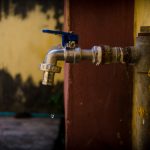Cholera vaccination
The cholera vaccination is given orally and usually involves two doses, which need to be taken a minimum of 7 days apart. In order to be protected abroad, you need to finish the course at least one week before travelling.
About the vaccine
If you are a parent or guardian of the child you are bringing in for treatment, please bring photo ID to confirm that you are a legal guardian for that child. If you do not bring the appropriate documentation required, we may not be able to provide the service required on the day. If you require more information, please email our booking line team on contact@healthclinics.superdrug.com, so that they can advise.
- When to get vaccinated: You need to finish the course at least one week before travel. This means, that you need to get your first dose at least two weeks before travel. Please note: Timelines for paediatric vaccines differ.
- Course: The course for adults consists of two doses given seven days apart.
- How it is given: The cholera vaccine is given as a drink.
- Side effects: You may experience temporary side effects such as fever, digestive problems or headache.
- Children: The vaccine is suitable for children over the age of two.
- Additional precautions: In addition to getting vaccinated you need to practise food, hand and water hygiene while in a risk area.
- Risk if you contract cholera: Cholera can cause digestive problems such as severe diarrhoea and vomiting. It increases your risk of dehydration, which can be fatal.
- Before the appointment: Avoid eating, drinking, and if possible taking medication for one hour before your appointment.
Prices
| Per Dose | £34.00 |
| Doses per course | 2 |
| Price per course | £68 |
How it Works
Attend your consultation
Get your treatment
Frequently Asked Question
About the cholera vaccination
The cholera vaccination is given orally and the course for adults involves two doses, which need to be taken a minimum of 7 days apart. In order to be protected abroad, you need to finish the course at least one week before travelling. Food and drink should be avoided 1 hour before and 1 hour after vaccination.
You may need the cholera vaccine if you’re travelling to a risk country or an area with poor sanitation. This may apply if you’re travelling to an area affected by natural disasters or if you will be working in slums or refugee camps.
Adults are protected for two years after the vaccination, children require more regular boosters and may need to take three doses of the cholera vaccine to be fully protected.
What is cholera?
According to the World Health Organisation, there are roughly 3‚5 million cholera cases and 100,000‚ 120,000 deaths worldwide due to cholera every year. A cholera vaccine provides protection from the infection and is 85% effective. The vaccination is particularly important for people travelling to remote regions as well as aid workers and medical professionals working in cholera areas.
Cholera is caused by an infection with vibrio cholerae bacteria. Although improvements to the sanitation system and an improved knowledge of personal hygiene have eradicated cholera in large parts of Europe, the illness is still present in many countries. Cholera bacteria spread through contaminated food and water, as well as contact with faeces. Cholera is not commonly passed directly from one person to another.
The illness often remains symptomless but it can cause symptoms affecting the digestive tract, such as diarrhoea, nausea and vomiting. Some patients also complain about stomach cramps. When left untreated, cholera can lead to complications such as dehydration and a lack of electrolytes, especially in a hot climate. In severe cases, dehydration can be fatal. A cholera vaccine is available for travellers who may be at risk.
How is cholera transmitted?
Toggle content goes heCholera is transmitted via contaminated water and food stuffs. A very important step in preventing infection is to be in control of what you eat and where your drinking water comes from. The safest option is bottled water. Alternatively, you can boil water and use a filter or purification tablets to make it safe to drink. While staying in a cholera area, you need to take particular care to wash your hands regularly, especially before touching food. You should cook all food well before you eat your meal while it is still hot (or keep it refrigerated afterwards). The nurses at our travel clinics are happy to advise you about the cholera vaccine and give you tips on how to stay healthy while travelling.
Cholera infection risk areas
Cholera is primarily prominent in regions with a poor sanitation system and cholera epidemics often occur in the aftermath of war and natural disaster.
In 2015, outbreaks occurred in the following countries:
Democratic Republic of the Congo (DRC), Kenya, Malawi, Mozambique, Nigeria, Somalia, South Sudan, and Tanzania, Dominican Republic, Haiti, Afghanistan and Iraq.
Please note: Risk areas change. To get up to date recommendations about your travel destination, search your country here.
Side effects
The cholera vaccine is usually well tolerated, with less than 1 in 100 patients experiencing side effects such as an upset stomach. Severe reactions to the vaccine are rare.



